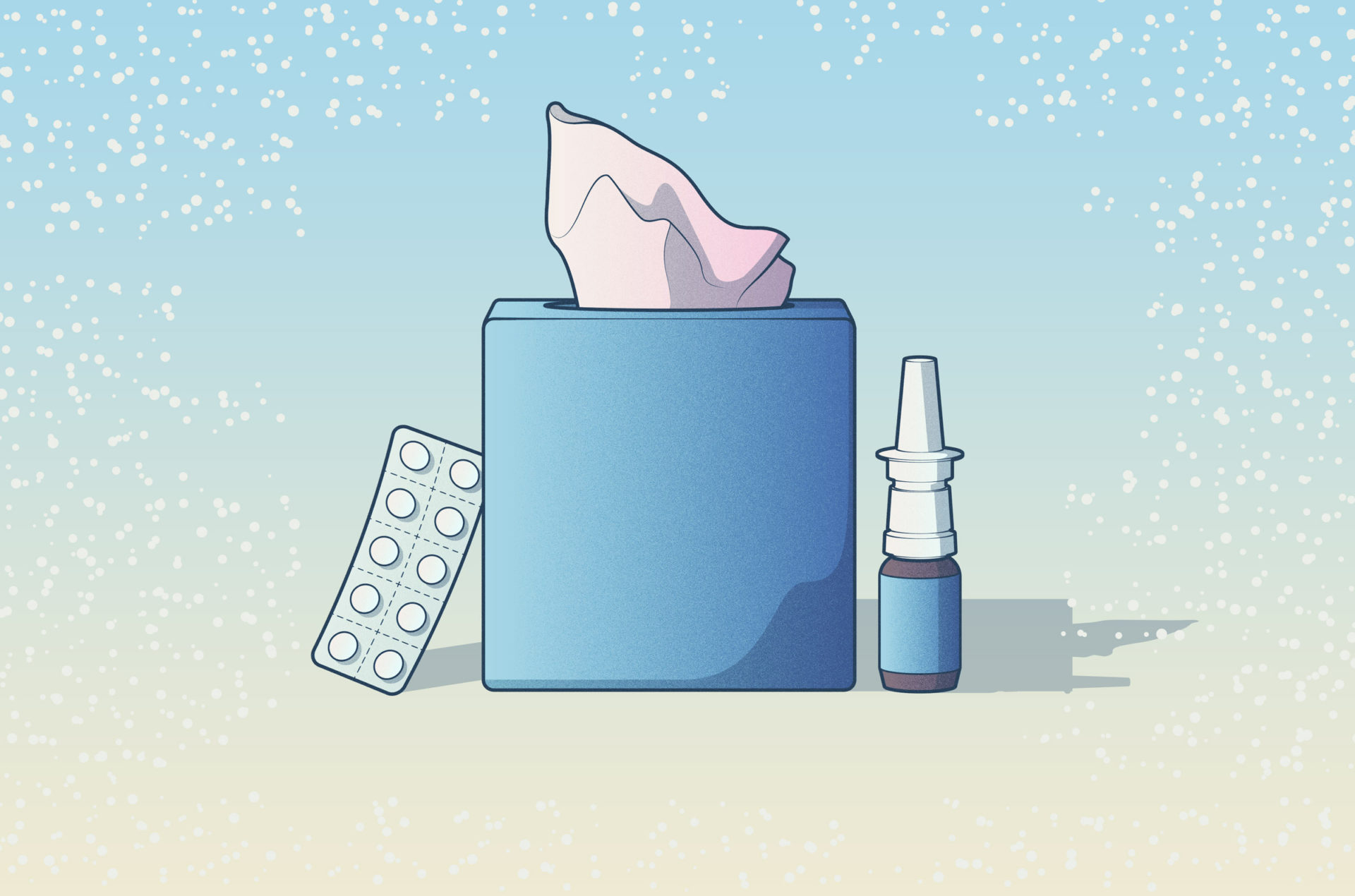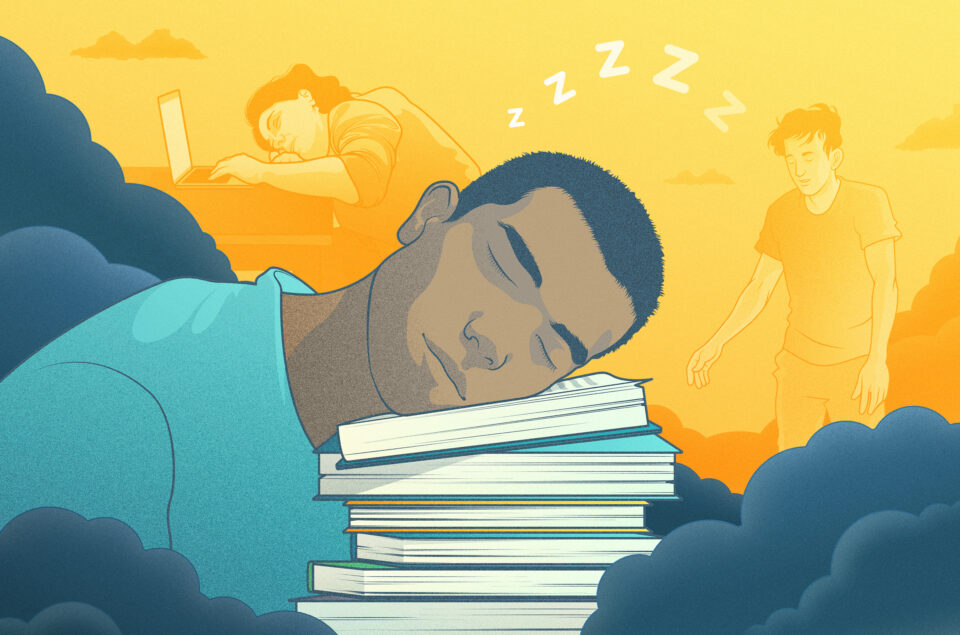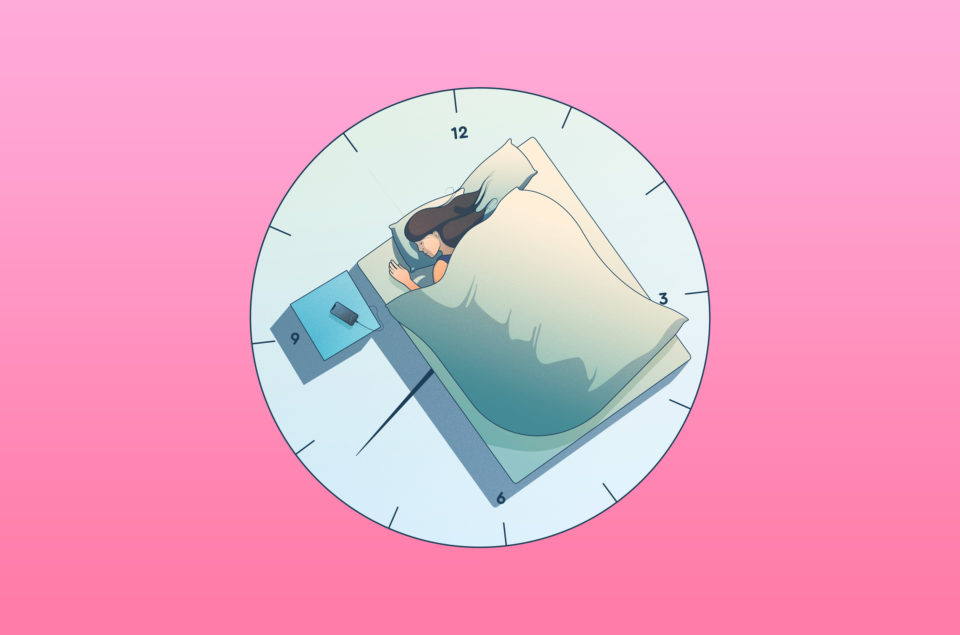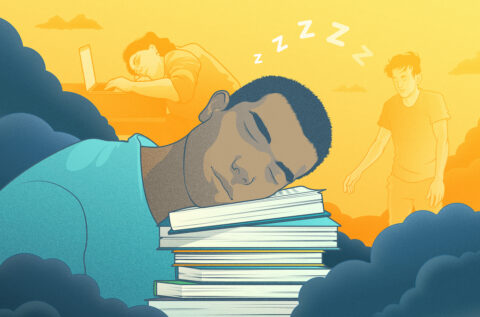Eyes and nose itching, the weather getting warmer outside, but the fear of opening a window as it will make it more difficult to sleep at night. Sound familiar? For people with allergies, sleeping well and achieving quality sleep can be difficult at the best of times. However during spring, with its onslaught of pollen, it can make it almost impossible.
Several studies have shown a link between Allergic Rhinitis (AR) – irritation inside the nose caused by allergens, such as pollen, dust, mold or animals – and sleep. One study found that in up to 88% of children with AR they displayed sleep problems. Furthermore, patients with AR had less adequate sleep compared with the healthy control group.
Having allergies simply has a severe impact on sleep and those who already suffer from a sleep disorder or sleep related condition are particularly vulnerable. We’ll cover the impact allergies can have on your sleep and walk you through best practices for bedtime whilst coping with allergies.
The allergens that disturb your sleep
In the U.S. more than 50 million people experience different types of allergies each year, and allergies are the 6th leading cause of chronic illness.
The allergens that have the most severe impact on sleep are:
- Pollen – Those who suffer from hayfever, often dread springtime, with the increased pollen from trees, grass and weeds. It’s sensible to stay informed on daily pollen counts – on the days where it’s particularly high, avoid staying out for long periods of time.
- Smoke – both cigarette smoke and smoke from the fireplace circulate allergens around the house. When your allergy symptoms are at its worst, it’s advisable to avoid this altogether.
- Pets – your beloved pets could be the reason you keep sneezing and coughing at night. As flakes of skin carried in their fur coats can carry allergens (pet dander found in their skin and saliva) that irritate and inflame AR. If your pet sleeps in your bedroom, consider creating a cozy space outside your bedroom for them.
- Dust mites – commonly found in the house, dust mites are microscopic, insect-like pests that thrive in warm and humid environments. Irritation caused in the nose by dust mites is regarded as a dust allergy, but the symptoms can be aggravated at night, as many dust mites are burrowed in mattresses and beddings.
- Mold – It’s important to keep your house well ventilated and check humidity levels in the house as mold loves humidity and damp spaces. Mold spores are a common allergen and can be difficult to remove if left too long, so keeping it at bay with cleaning and wiping damp surfaces increases your chances of avoiding this.
The connection between allergies and sleep disorders
A study with almost 1800 participants looking at sleep conditions for patients with AR and severe AR, found the participants experienced sleep complaints significantly more often than participants with sporadic or mild AR.
In another study, a group of French researchers estimated the occurrence of sleep disorders in adults being treated for AR, compared to a control group without AR. The results clearly showed that sleep-related grievances were much more common in the patient group with AR, reporting insomnia, difficulty falling asleep, and not getting enough sleep. Conversely and perhaps more fascinating is yet another study that showed that poor sleep quality contributed to higher odds of experiencing hay fever. Furthermore, participants with insufficient sleep had higher odds of developing allergic sensitization. The findings essentially suggest a positive association between poor sleep leading to allergy-related outcomes.
Risks associated while sleeping with allergies
Some of the difficult outcomes when dealing with allergies at night include:
- Delay of onset of sleep
- Disturbed sleep, with multiple wake-ups.
- Uncomfortable breathing, thus increasing snoring
- Reduced sleep quality
This has far reaching implications during the day, causing daytime sleepiness and perpetuating a vicious cycle of fatigue and sleep deprivation. The risk for developing more serious sleep conditions, such as Obstructive Sleep Apnea (OSA) for people with allergies is therefore higher.
Tips to help you cope when sleeping with allergies
Scanning your bedroom is a helpful start in addressing your allergy symptoms at nighttime:
- Remove clothing outside of the bedroom – as allergens can collect on your clothes, body and hair, the best way to avoid it following you into the bedroom and disturbing your sleep, is to leave it by the door. For example, pollen is found outside your home – keep it there by changing clothes and having a shower and wash as soon as you step inside.
- Pick hypoallergenic bedding, pillows, mattresses. The materials used are resistant to allergens, such as mold and dust mites.
- An air purifier will increase the air quality in your home by removing contaminants in the air circulating in the home. Avoiding smoking indoors is also advised, but if this is not possible, then an air purifier should be considered.
- Pets – 62% of all U.S households have pets. Besides the pet dander, allergic reactions are also caused by the proteins found in pets’ saliva, urine and feces. To minimize disruption caused by a reaction at nighttime, it would be kinder to yourself to create a space for your pet outside the bedroom.
- Vacuum & clean frequently, changing towels, not allowing dust or pollen to settle indoors.
- Upholstery – to avoid the dreaded dust mites, keep all upholstery, such as carpets, curtains and sofas, clean and dust-free.
- Nasal sprays and flushing nasal passages can give relief when sleeping at nighttime. Elevating your pillows can also help unconstricted breathing.
- Keeping windows closed is necessary especially when pollen count is high. During hot seasons installing an air conditioner may give some relief when you can’t keep windows and doors open to let in fresh air.
Consult a physician if allergies are keeping you up at night. Although difficult to control, allergies should never be allowed to let the occasional bad night’s sleep spiral into a prolonged sleep disorder!
Sleep Cycle provides tailored guidance on how you can improve your sleep. Get started for free.









